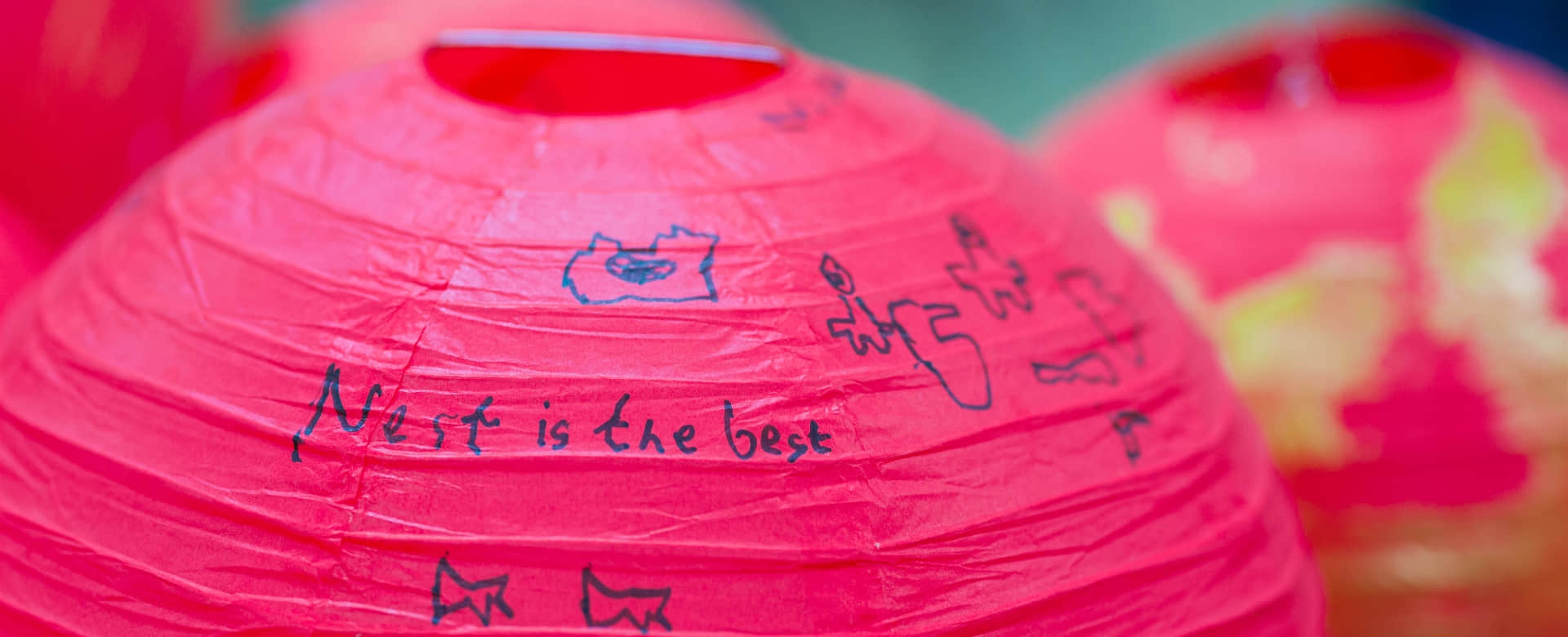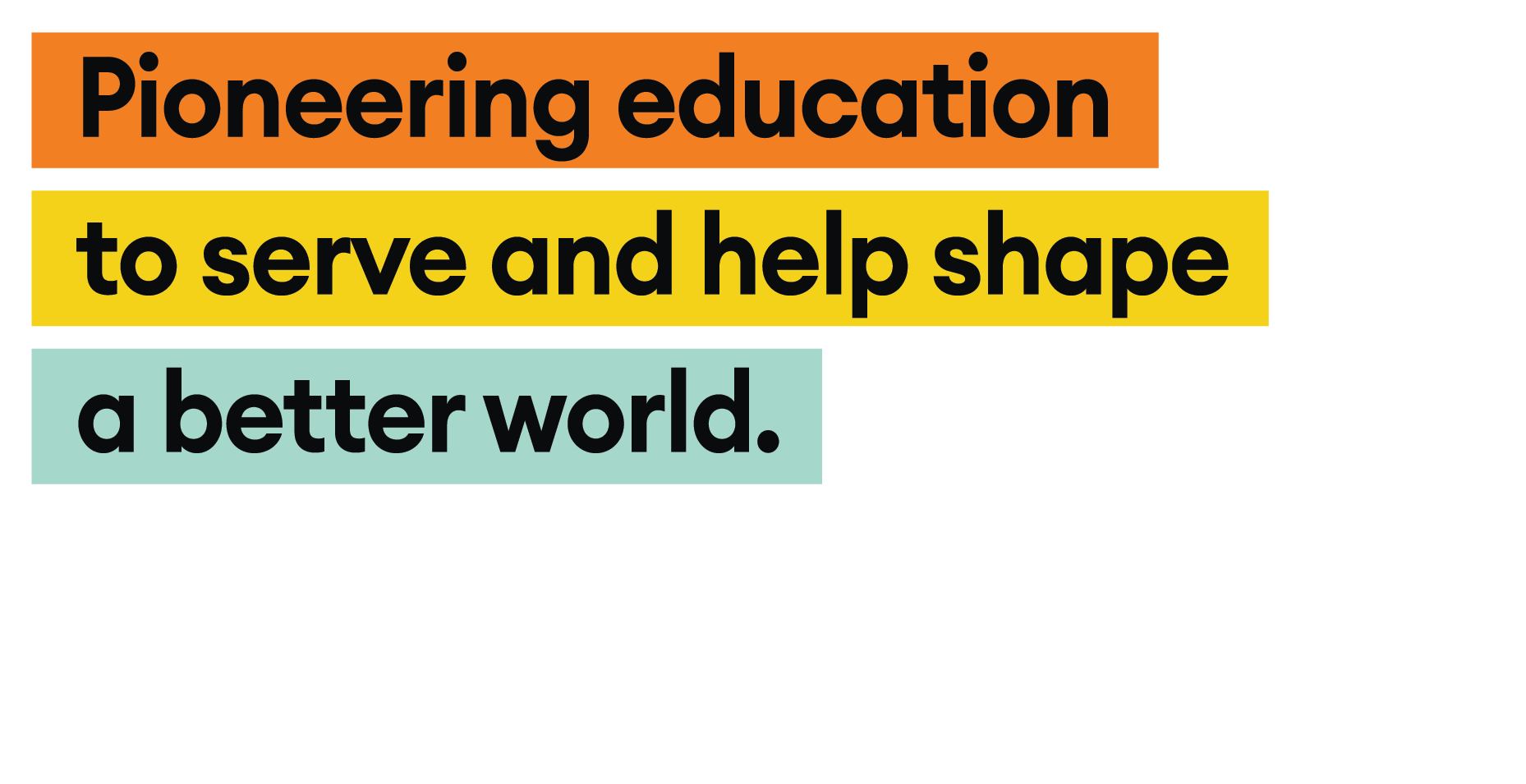Educational Insights | Bilingual Literacy in the Nest

Nini Li
Reception Teacher
Curriculum Lead for Communication, Language and Literacy
Bilingual literacy plays a significant role in the daily teaching and learning in the Nest. It includes reading and writing for both English and Mandarin, giving children greater opportunities to apply their phonics or phonological awareness in their play-based environment. As one of the specific areas of learning, bilingual literacy is the most direct way to assess a child’s comprehension. Bilingual literacy offers the chance for children to do mark-making, explore knowledge from their books and express their own thoughts. Meanwhile, teachers assess children through a variety of methods, including outcomes, interactions, and observations. As a result, we have an accurate picture of what children can do and understand independently and consistently.
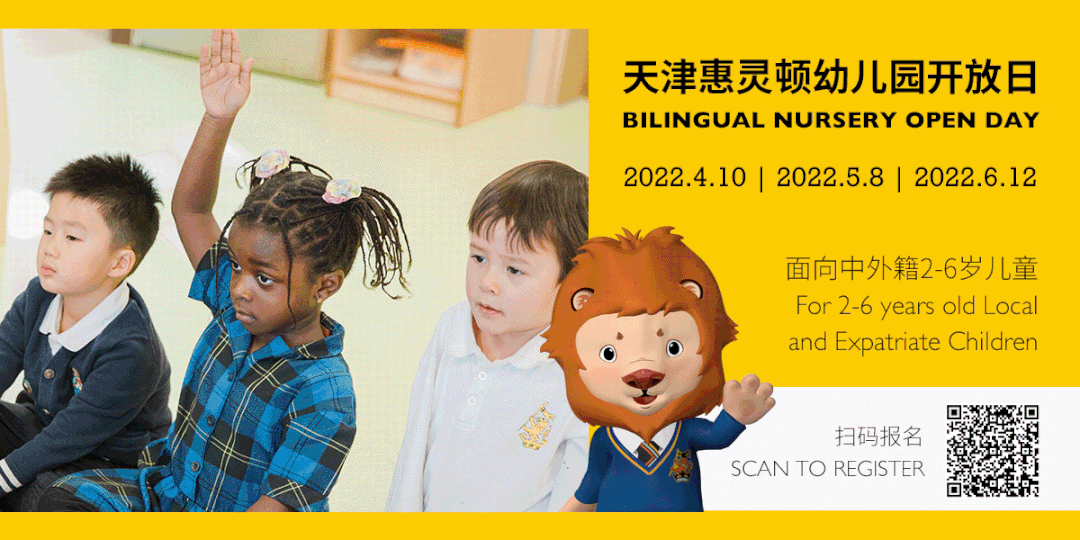
There are different stages of writing: for Eaglets, children engage in gross motor play outdoors, which means they develop solid gross motor skills which support the further development of fine motor skills. Opportunities for sensory stories and mark-making are a good foundation for reading and writing. This leads on to Nursery, with children able to give meaning to their mark-making and explain to adults - in either English or Mandarin - their work. Moreover, at this stage, we expect a child to follow prompts and recall key phrases from rhymes and stories. This embeds the storybook style of writing so children learn how to structure a story orally, long before they are able to write it. To support the development of handwriting in the Nest, we offer children a pre-writing programme, Write Dance, which gives them the chance to follow rhyme sounds and express their pre-writing movements in the air, on a surface or large piece of paper, with many different tools and media.
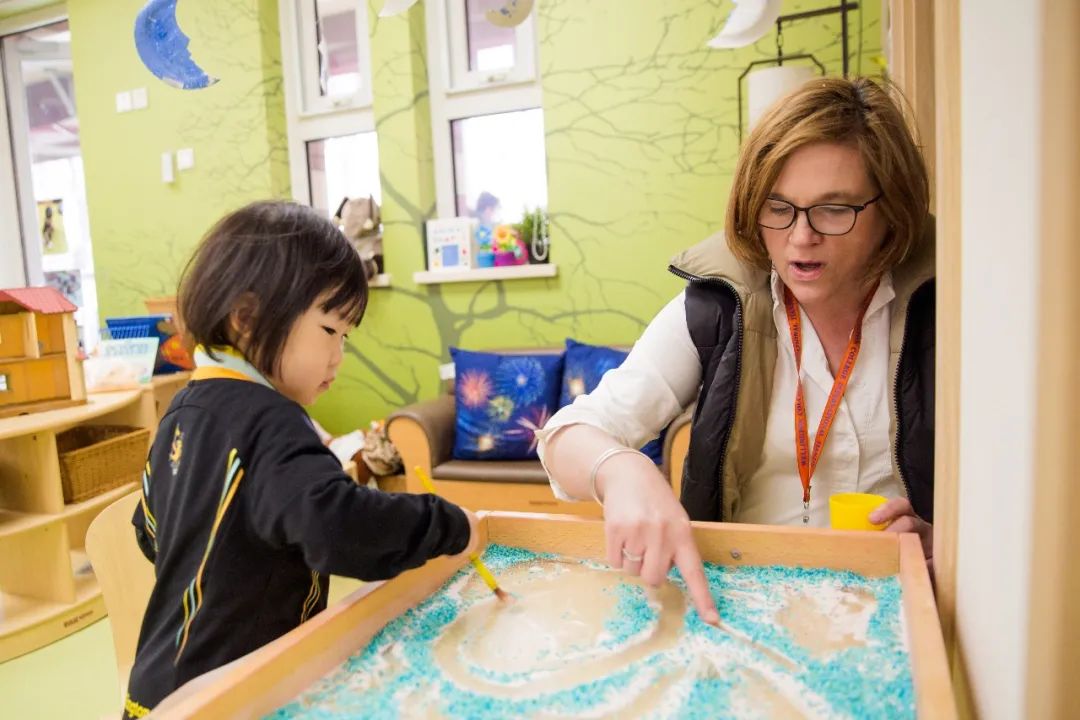
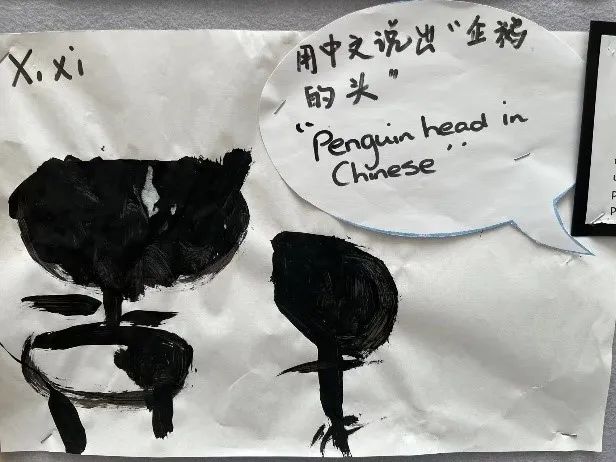
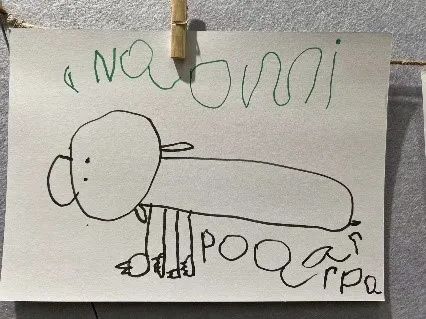
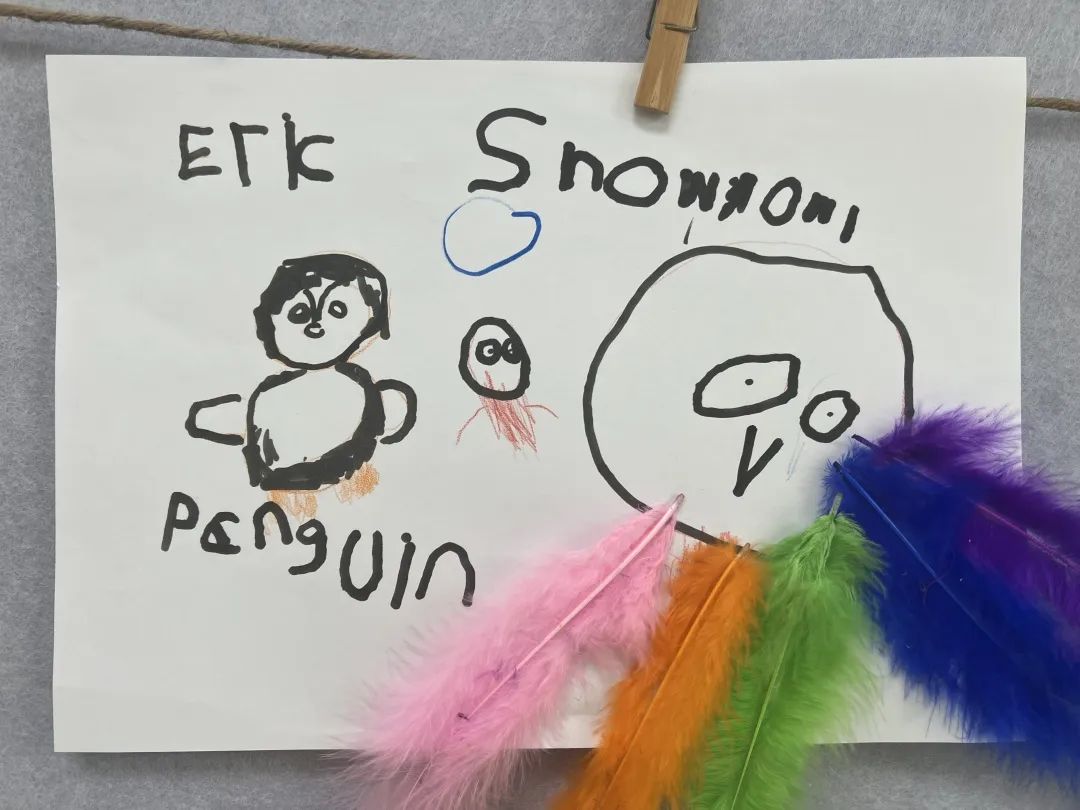
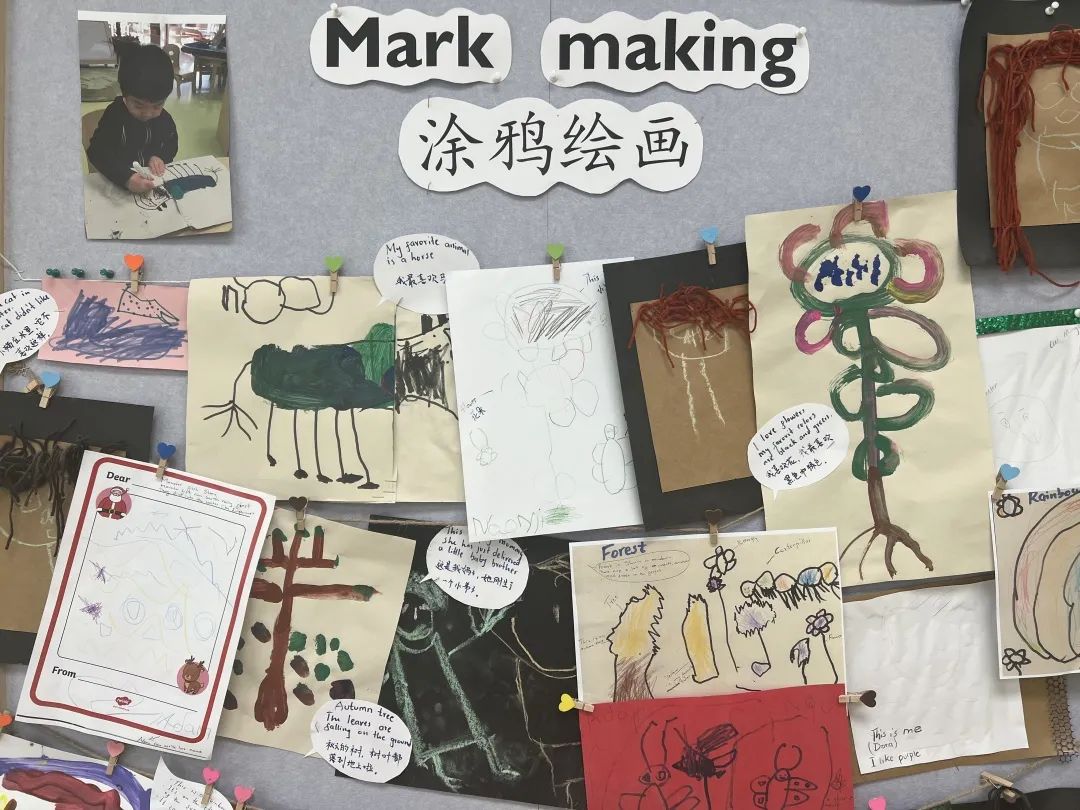
By the time of the transition from Nursery to Reception, children who have been with us for some time have a large bank of stories in English and Mandarin committed to memory. They have learned about rhyme, repeated phrases and how stories are written. In Reception, children start to form recognizable letters and give meaning to what they draw or write by applying phonic knowledge. In this year, they are introduced to the Read Write Inc programme, which is used consistently across the Nest and Junior School. In this programme, children learn how to pronounce and write single phonemes, CVC words, phrases and, by the end of the year, children are expected to achieve their ELG (Early Learning Goal). In ELG, children can use their phonic knowledge to write words in ways that match their spoken sounds. They can write simple sentences which can then be read by themselves and others. This does not mean they spell everything perfectly. It means they can say and hear the phonemes in order and know what letter to write. This is called making phonetically plausible attempts at words.
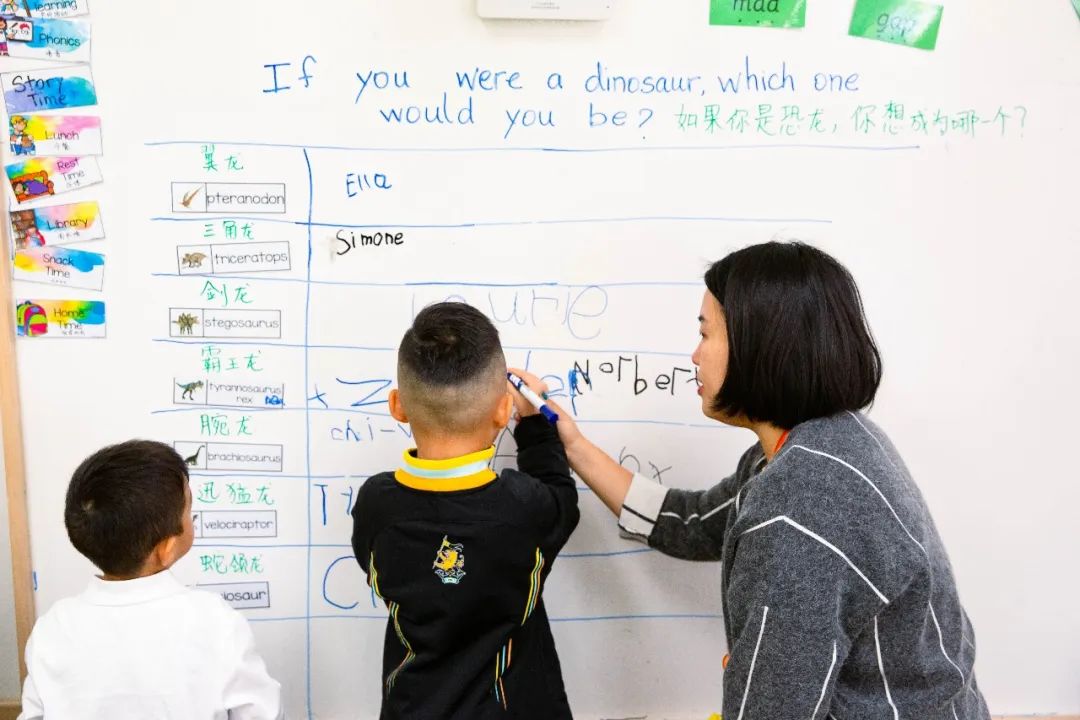
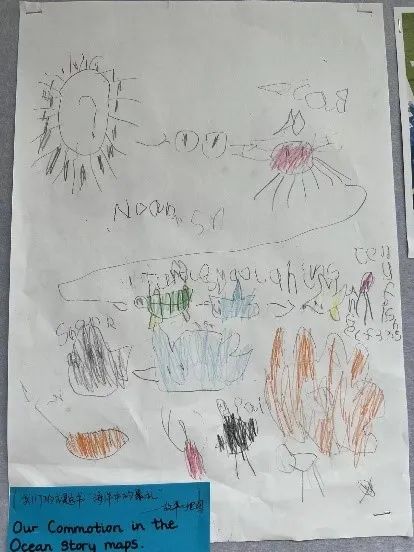
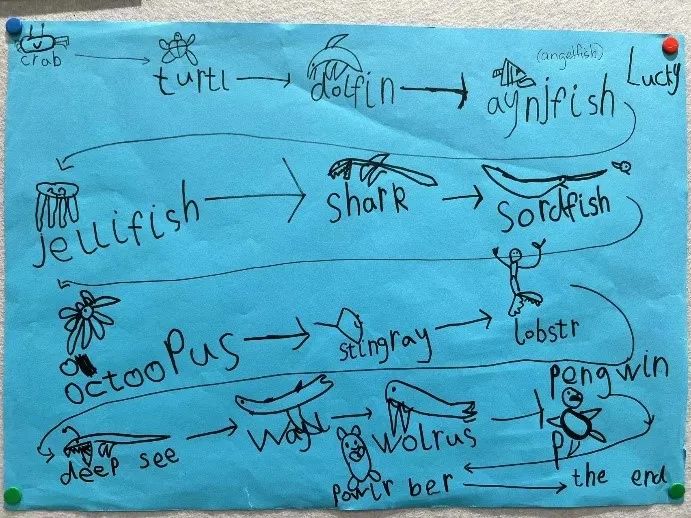
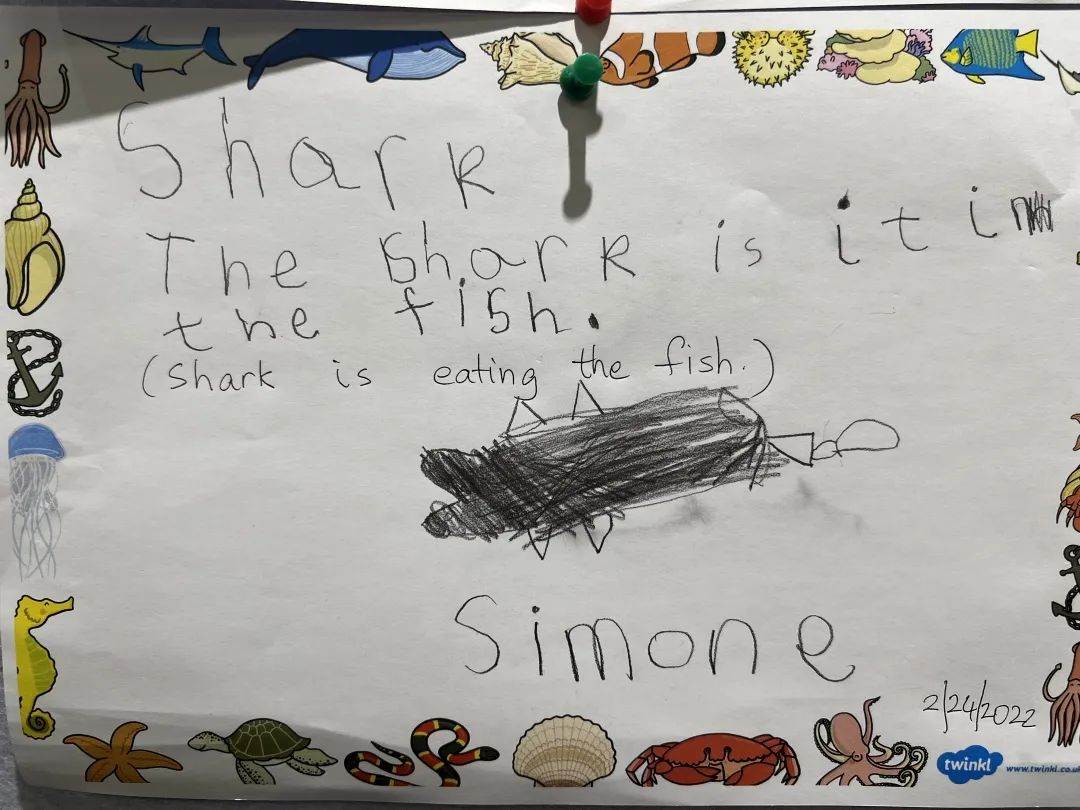
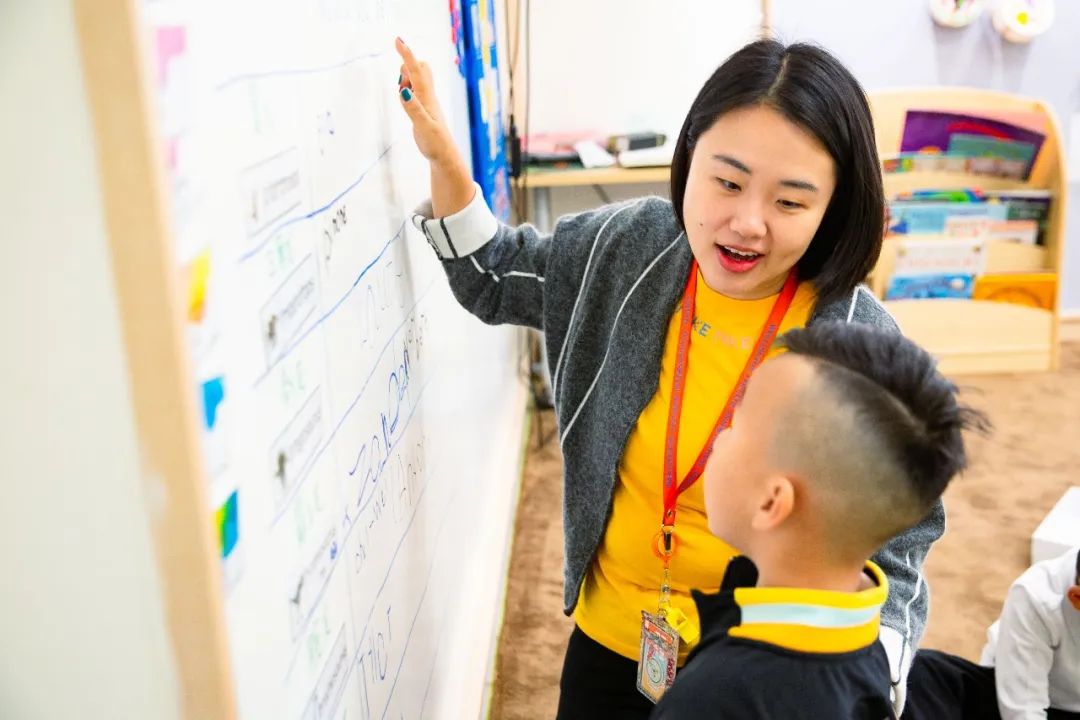
After consolidating a child’s phonic knowledge, in year 1 we research more deeply into concept knowledge and bilingual comprehension in reading and writing. It is at this stage that children’s work starts showing language logic and reasoning. In other words, they are not only recalling a story or event but can focus on details such as tense, sequencing events and characters. They practise each day to prepare for a smooth transition to the Junior School. Children’s writing at this stage allows them to create their own short pieces of writing, using common or high-frequency words or other key features they have learned from the books.
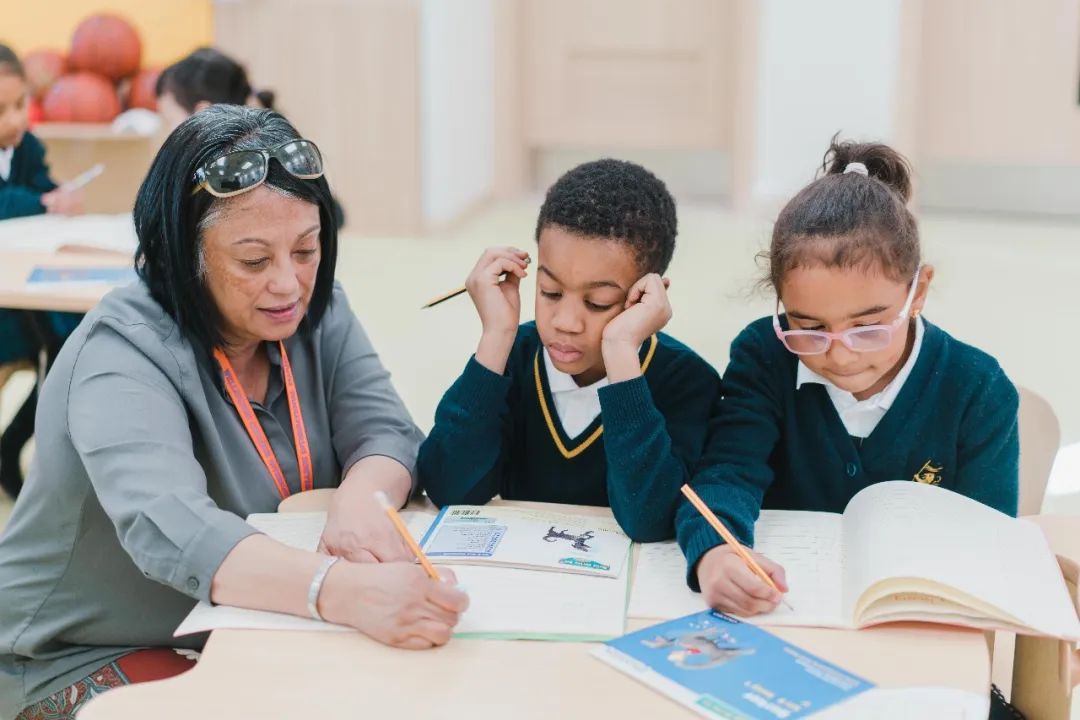
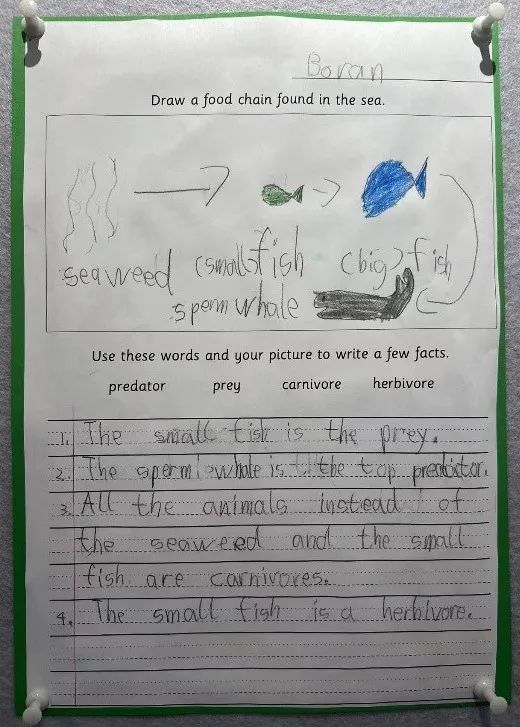
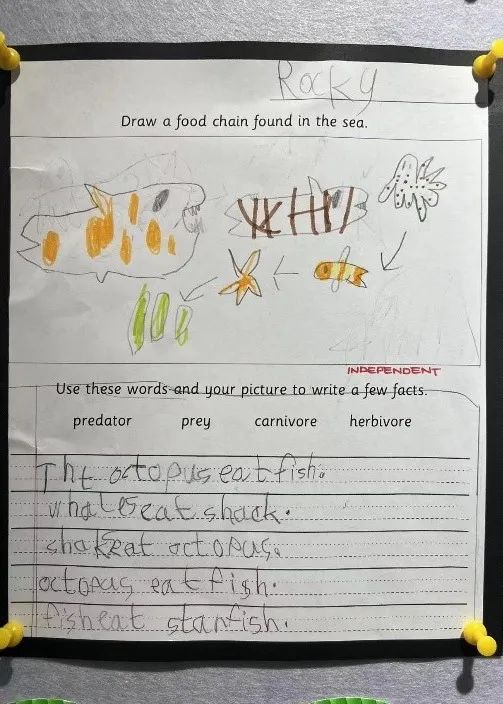
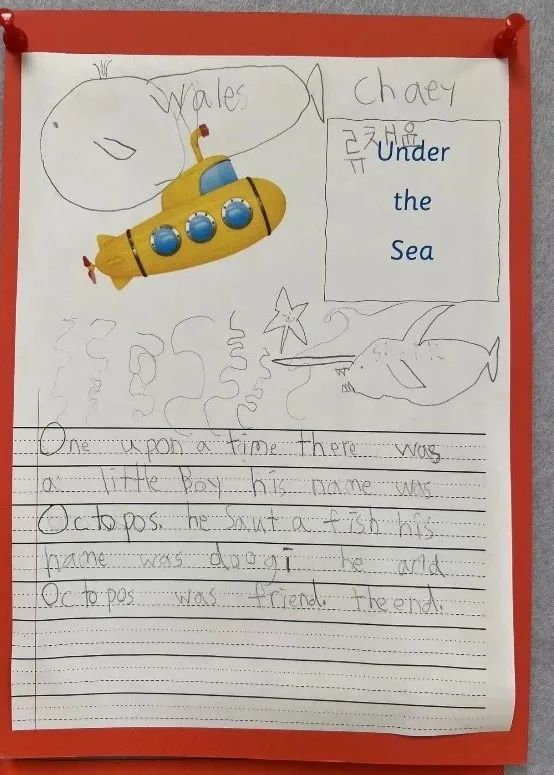
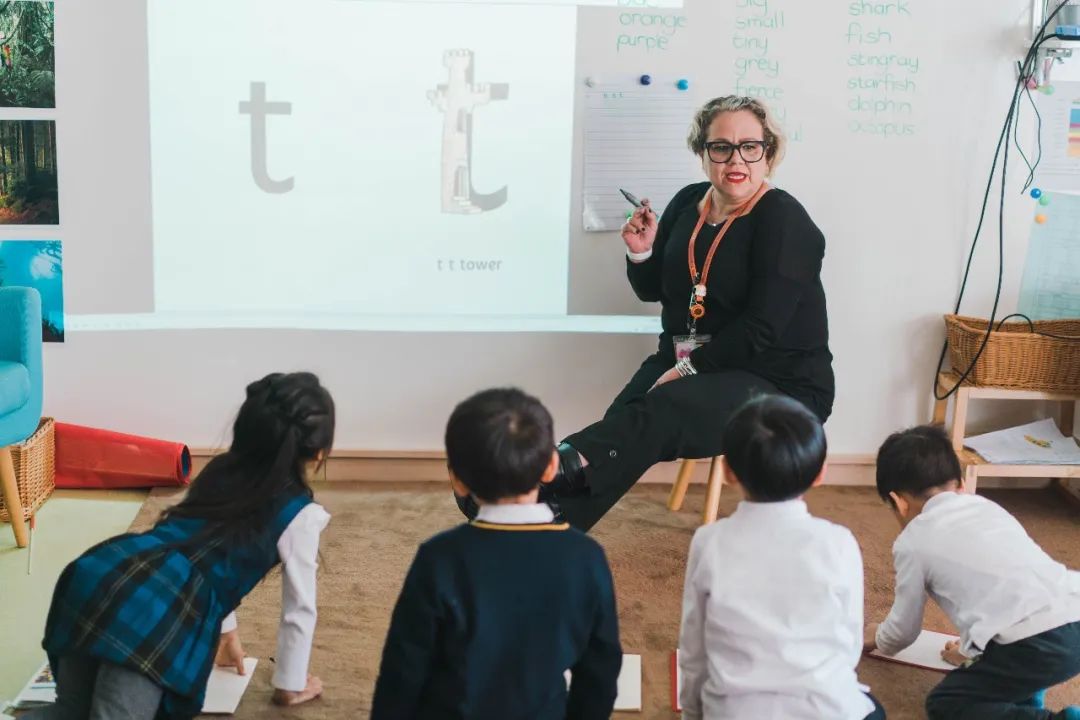
In the Nest, we offer children independent writing opportunities in a play-based learning environment. The team regularly scan our learning area to assess a child’s wellbeing and involvement to ensure all our pupils are learning in an environment that helps them to progress. Based on these observations, teachers adjust the provision to promote the best writing outcome for all children. We also provide different interventions and extension work so that children can make progress even if they are finding things challenging, or because they can benefit from further stretch in their learning.
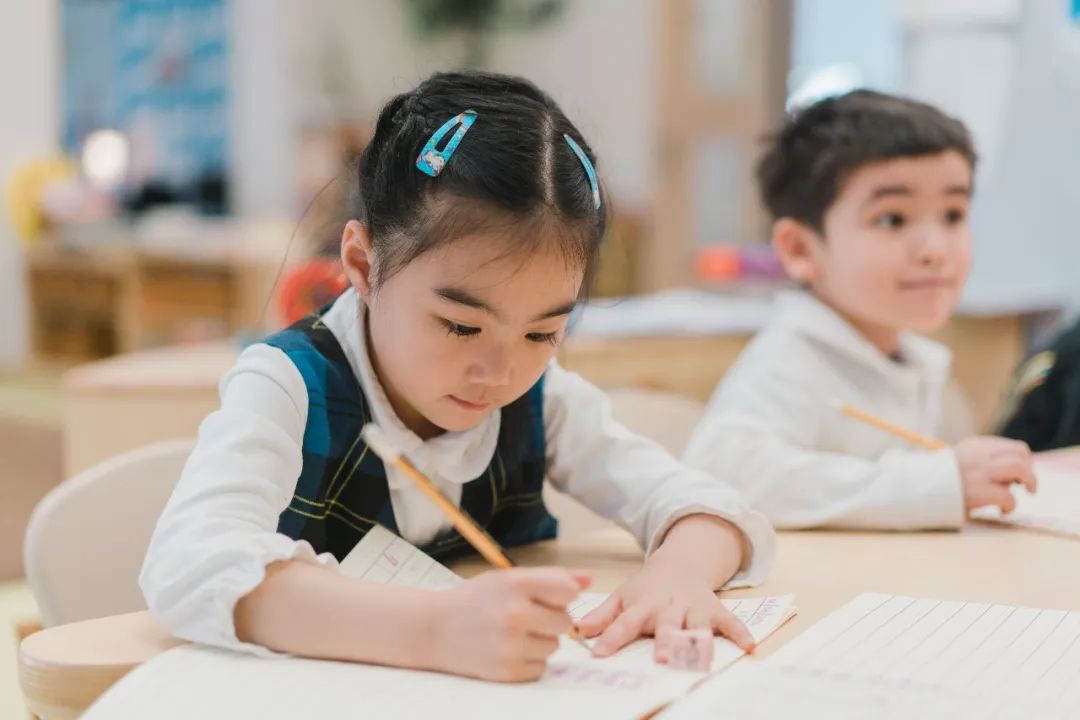
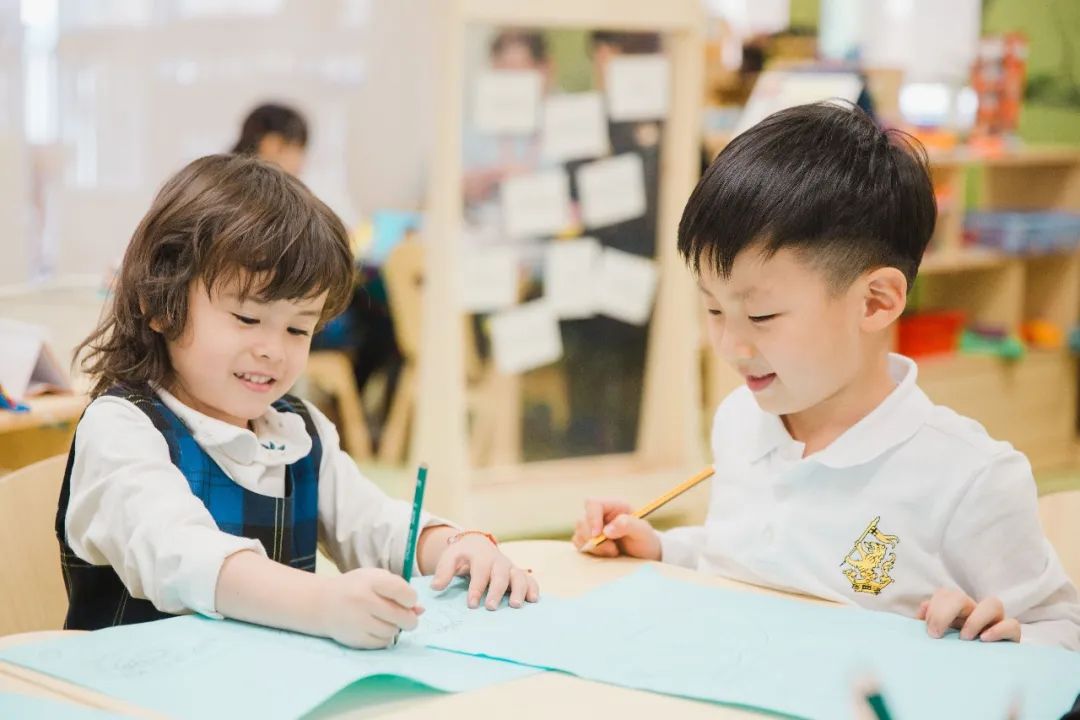
We believe the best writing comes from the best provision.

Related Articles








 Channel
Channel 
 Linkedin
Linkedin  Weibo
Weibo  Facebook
Facebook  Ins
Ins 


